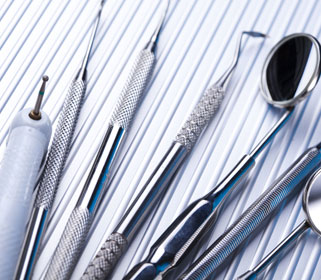Home » Surgical Instruments, Medical Surgical Supplies & Equipment » Sutures
Sutures
Make the Final Accurate Stitches with Surgical Sutures
Surgical sutures today are generally classified into two categories: non-absorbable and absorbable. Within these two categories, sutures are further divided into classifications based on their material structure. Surgical sutures are monofilament or braided. Finally, suture materials are synthetic or natural.
World of Sutures Grows Larger All the Time
There are many types of surgical sutures, and surgeons have a lot of leeway in terms of choosing their preferred suture style. However, the different types of sterile surgical threads have properties that make them more suitable for particular type of surgeries or medical procedures.
For example, absorbable sutures are absorbed by the body as the wound heals. Gut sutures made from purified connective tissue dissolve and are a good choice for dental or veterinary surgery. Absorbable polyglycolic braided sutures are fast-absorbing and are used for soft skin tissue procedures like plastic surgery. Synthetic mono sutures that are made of synthetic materials are also good for plastic surgery, but not for any surgeries where even a minimal acute inflammatory reaction can cause patient trauma.
Nonabsorbable mono poly sutures have less chance of triggering an acute inflammatory tissue so are used in cardiovascular surgery. Nonabsorbable nylon surgical sutures are used for soft surgery and ligations in ophthalmic, cardiovascular, and neurological medical procedures. Nonabsorbable polyester sutures are ideal for cardiovascular surgery requiring prosthetic implants. Nonabsorbable silk sutures is one of the most versatile products used in dental, cardiovascular, and plastic surgeries.
These are just a few examples of the many types of natural and synthetic sutures.
Qualities that Matter
The availability of many different types of surgical sutures means surgeons and other medical personnel can select the sutures that offer the most advantages to patients. Suture qualities to consider include, but are not limited to:
- Retention of tensile strength
- Absorption rate of sutures
- Type of tissue to be sutured
- Inflammatory versus non-inflammatory
- Visibility (based on color)
- Knot security
- Non-wicking to impede bacterial migration
- Pediatric versus adult surgery
Surgical Sutures for all Applications
There are surgical sutures for each type of surgical procedure, including gynecology procedures, eye surgery, skin suturing, ligation, oral surgery, muscle repairs, urology, gastrointestinal surgery, general surgeries, and more. Sutures are used by medical personnel in hospitals, outpatient clinics, mobile healthcare units, and veterinary surgical centers. Surgical sutures are one of the most critical and globally used medical supplies.














